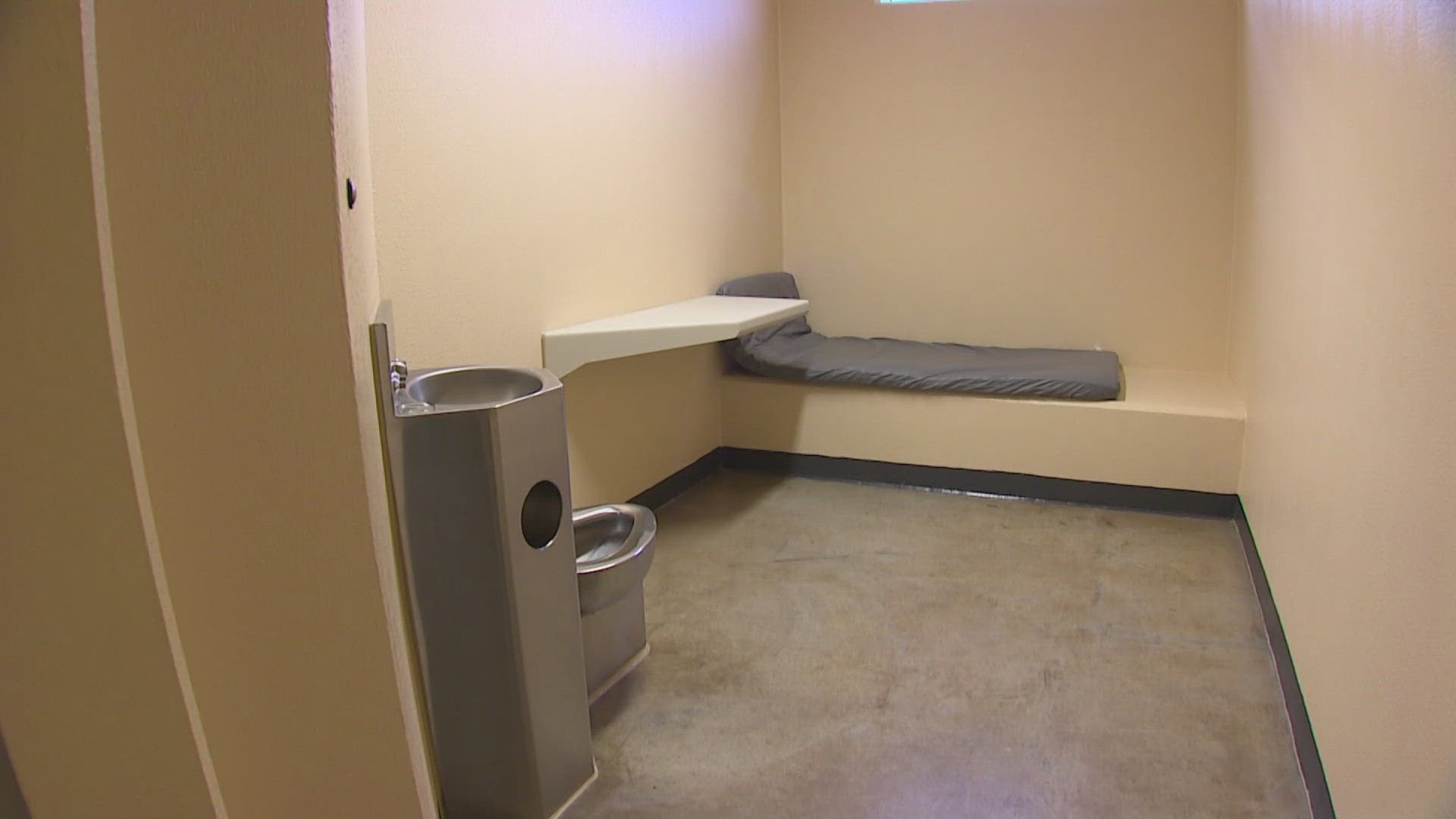OLYMPIA, Wash. — Researchers looking into the use of solitary confinement in Washington prisons said they were surprised by some of their findings, including tactics and devices used behind bars.
“There were a few surprises,” said Angee Schrader, co-author of the study conducted by the Washington Office of Corrections Ombuds.
The study looked at the use of solitary confinement over the past decade.
Researchers determined approximately 3,000 inmates were either subjected to a total of more than four months of solitary time or 45 consecutive days between 2014 and 2023.
”I think it was also eye-opening to see the number of people who had self-harmed, or attempted suicide or died by suicide,” said co-author E.V. Webb.
According to the report, 14 of those inmates died by suicide and 176 tried killing themselves while serving time in solitary confinement.
Schrader said she was not aware of two pieces of equipment used by staff in solitary units: a device called a “Band-It” a strap worn by inmates that can administer shocks when triggered remotely by staffers and a riot shield that also has the ability to shock someone.
Researchers toured the 11 state prisons with solitary units and 13 offenders who have spent portions of their sentences in solitary were interviewed by Ombuds staff.
Researchers said the inmates described inhumane and traumatic conditions.
”It’s horrible. I’ve watched people get ahold of a safety razor, slice their throats. Within days they’re unraveling, smearing feces, banging,” said an unidentified inmate in a video clip released by the office.
Schrader said 97% of the state’s inmates are eventually going to be set free.
”Putting people into a room by themselves and stripping them of everything, including their dignity, is not going to help them successfully reenter into our communities,” said Schrader.
Researchers also determined the state inconsistently assigned inmates to serve portions of their sentence in solitary confinement, a designation not only reserved for inmates considered violent or dangerous to themselves or others.
“There's individuals who come out as transgender are placed in solitary confinement while they're pending a housing placement,” said Webb, “There's lots of reasons that people would be in solitary confinement that don't necessarily match what I think the public thinks of.”
Schrader said later this fall the office will release another study offering ways to reduce the use of solitary confinement, something the Department of Corrections said the agency is already working on.
In January 2023, Department of Corrections Secretary Cheryl Strange said the agency hopes to reduce the use of solitary confinement by 90% by 2028.
Deputy Secretary Sean Murphy said progress is being made but noted the DOC did not receive the funding it hoped for to reduce solitary use.
”We received about an eighth of the funding that we requested, and we've already significantly impacted a third of the population,” said Murphy.
He said the state has decreased the number of beds used for solitary confinement and inmates have been offered more counseling and education courses, sometimes offered in a group setting, interacting with fellow inmates.
The state uses chairs that allow for restraints to keep the incarcerated individuals locked in place.
Murphy said DOC will request more funding to hire more staff, including mental health counselors, and to update facilities to allow for more human interaction for inmates who still need to be isolated and under closer supervision.
”We're in the business of supervising people who do some pretty bad things, and in some cases, they continue to do some of those things in prison. Our goal is to prepare people for release but keep people safe while inside of our facilities,” said Murphy.

